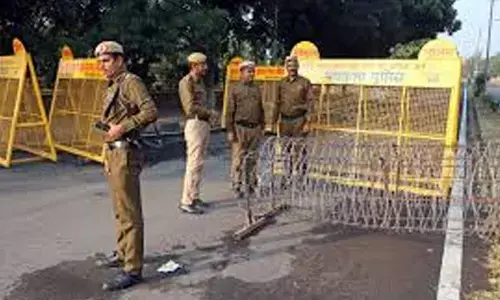Overseas debt, a bad proposition

Finance Minister Nirmala Sitharaman kicked up a debate among economists and common people by announcing in her maiden Union Budget 2019-20
Finance Minister Nirmala Sitharaman kicked up a debate among economists and common people by announcing in her maiden Union Budget 2019-20 the Central government's plans to go on a global shopping spree for debt in foreign currencies.
Her rationale for this proposal is that India's sovereign external debt to GDP ratio is less than 5 per cent, which is the lowest globally. The other reason she has cited is that such a move will leave a positive impact on the government bonds in the domestic market.
It is true that India's sovereign debt in external currencies like dollar and others, is very less. Whatever it has currently, the external debt is mostly confined to borrowings in foreign currencies from official lenders like World Bank.
Such loans come at low cost as they are offered at concessional interest rates.
India and Indian policymakers did not go for external borrowings in foreign currencies fearing depreciation of rupee against global currencies like the US dollar and others.
Their fear is not far from reality. India's rupee depreciated by over 6850 per cent against the US dollar in the past 70 years. In 1947 when India gained Independence from the British rule, India rupee was equal to the US dollar.
That means one rupee was equal to one dollar. On Tuesday, one US dollar was equal to Rs 68.57. That tells the full story why Indian policymakers preferred rupee borrowings.
Of course, interest rates on US dollar or Japan's yen loans are very minimal compared to those being levied on rupee borrowings. That is the distinct advantage the foreign currency loans offer.
But that advantage evaporates the moment rupee starts depreciating. Lower value of rupee means higher principal outgo in dollars or yen. That's the reality.
Moreover, experts say the move will not benefit domestic bond market as envisaged by the Finance Ministry. As per Union Budget, the Centre intends to borrow Rs 7.1 lakh crore in the current fiscal. There is no clarity whether the overseas borrowings will be over and above this number.
Anyway, going for global loans in foreign currencies is fraught with enormous risks. The government should opt for such an option only if it is extremely confident that rupee will not depreciate much in foreseeable future.
It will also be good for the Indian economy if currency remains stable or appreciates against the greenback. Going by the history, that is a mere wishful thinking and we shouldn't be surprised if rupee scores a century against the US dollar a few years.
As Raghuram Rajan, former RBI Governor and an economist of global repute, suggested, the government should explore other options to increase dollar inflows into government securities (G-Secs).
One option is to rise ceilings on foreign portfolio investments into rupee bonds. That way, it can insulate itself by confining to rupee borrowings while at the same time it can enhance foreign currency flows into government bonds.
That means getting two birds at one shot. Therefore, borrowing by the Indian government from overseas in foreign currencies is a bad proposition which will hit the economy in long-term. Hope better sense prevails on the Modi 2.0 government.

















